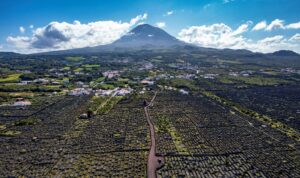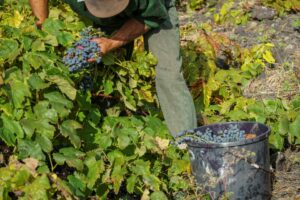MADALENA
PORTUGAL
2023
Contact
Nestled in the heart of Pico Island, Madalena Village emerges as a cultural and natural haven, weaving a rich tapestry of history, economic evolution, and environmental preservation. Renowned as one of the ten wine-growing regions globally designated as a UNESCO Heritage Site, Madalena proudly holds the title of the Azores’ wine capital. The village’s vinicultural legacy, encapsulated in its sprawling vineyards, has been etched into the landscape, contributing to its status as the 525901st Portuguese trademark.
Madalena, is where the cultivation of wine intertwines with the very fabric of its existence. From the historical export of its delectable nectar to global destinations like India and Macau, to the modern resurgence of the wine industry, Madalena stands as a testament to resilience and adaptability.
Beyond viticulture, Madalena’s narrative weaves in the once-dominant industry of whale hunting, which, in a remarkable transformation, gave rise to whale watching. The village’s commitment to the well-being of cetaceans and the preservation of its whaling heritage has positioned it as a global exemplar in sustainable tourism.
The village’s cultural and natural resources contribute to its allure. These include UNESCO-protected wine, vineyard landscapes, festivals, folklore, and whaling heritage. Natural treasures encompass the Pico Island Vineyard Culture Landscape, Pico Mountain, Azores Geopark, and various protected areas. The intertwining of cultural heritage, such as Holy Ghost festivities and folklore, with the lush natural surroundings paints a vibrant picture of a village deeply rooted in tradition.
Recognition and awards, such as the National Landscape Prize and the title of City of Wine, highlight Madalena’s commitment to promoting and conserving its cultural and natural assets. Financial support programs have expanded the UNESCO World Heritage Site’s vineyard production area, fostering growth and sustainability.
HIGHLIGHTS
-

from Whaling to Whale Watching
In the 1980s, Madalena underwent a significant successful economic shift from the age-old practice of whale hunting to the more sustainable and ethically conscious endeavor of whale watching and the development of sustainable tourism. Leveraging their expertise, locals transitioned to whale watching, prioritizing the welfare of cetaceans. This metamorphosis not only preserved the region’s whaling heritage but also became a cornerstone in the revitalization of the local economy. Particularly impactful was the surge in job opportunities, particularly benefitting the younger population.
Pico, and Madalena in particular, now stands tall as a global exemplar, offering a blueprint for communities for responsible and awe-inspiring whale watching.
-

Exemplary Wine Tourism
The village’s vinicultural renaissance is marked by its UNESCO-protected vineyards. The recovery of over nine hundred hectares of vineyards, coupled with the emergence of new companies and international accolades, supported by government initiatives and financial aid, has not only revived the landscape but also fueled the island’s wine industry.
Awards like the Best Sustainable Project 2023 for the Azores Wine Company underscore the success of sustainable practices.
The preservation of heritage buildings, including wineries and wine yards, has become pivotal in attracting tourists, while active community engagement through cultural events like the Fringe Festival and Festas da Madalena breathes life into the village’s traditions.
-

A Tranquil Haven of Serenity
Aldeia dos caldeirões /Aldeia das Gingeiras – Located in the parish of São Mateus, places once occupied by the daily chores of the locals, have been transformed into places where now only the sounds and calm of the surrounding nature predominate, thus offering authentic stays of excellence and charm.
The houses, reconstructed with environmentally friendly materials, pay homage to traditional Picoense architecture, using basalt stone and wood. This deliberate choice not only reflects a dedication to preserving local building practices but also underscores a larger commitment to reducing the environmental footprint.

